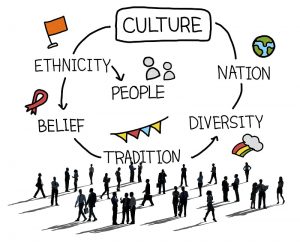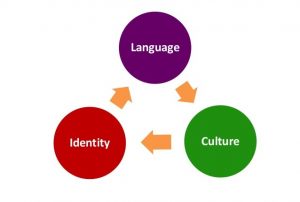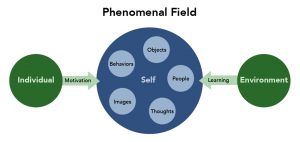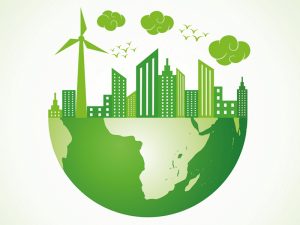Culture is a people’s way of life, encompassing their modes of shelter, food, and language. It also incorporates a people’s way of entertainment Within culture a people’s race and ethnic communities are present.
The tabula rasa principle (the learner is an empty slate to which information should be placed), where a clear dichotomy between the recipient and the provider, has continued to mark our African interactions. Parents versus children, teachers versus students; employers versus employees; leaders versus citizens; and developed world versus the developing one, are polarities that have continued to mar our integral development. The core principle has been the first lot, know it all while the second lot are empty slates. This has led to top down decisions, arrived at far from the needy, and brought down with no informed consent of the needy and speedily forced down the systems of these needy. This explains contributes to the explanation why, despite the immense donations and efforts, Africa continues to grapple in poverty.
This article seeks to explore how understanding a people’s culture is a prerequisite for social transformative engagements, and hence integral development. The topic is discussed under four sub-headings: Attitude (willingness to learn); insertion and language acquisition; identification of need(s); road map on realization of change (Social transformative approach).
Attitude (willingness to learn): Attitude is narrowed down to one’s willingness to learn. This is founded on the realization that “Nobody is to poor to give and no one is too rich never to need”. Attitude provides the impetus to act or (to idle), and guides the direction to pursue. Oblivious of Africa’s authentic challenges, benefactors largely focus on their histories to decide what ails Africa. Since much of Africa’s history, until recent decades, has been oral, lack of reference material relating to this giant continent, continues to jeorpadise, any solid interventions. Mediocre information, skewed towards self financial gain, continues to add to the bug that ails Africa. Sadly, the information is often by fellow Africans. Any attempt to desire good for this continent, has to have as its entry, the right attitude towards Africans: they are human beings, have a capacity to be human and work through their intelligence, and though struggling, they are hopeful people. Were it not so, many would easily succumb to the natural disasters amidst bad governance.
Insertion and Language Acquisition: Movement is a basic quality of living organisms. For the human being, and in conformity with the topic at hand, like-minded persons need to engage with Africans. Through verbal and non verbal communication (denoting human language), different perspectives shall be brought to play to understand Africa. This shall not only inform incomers but also the residents of the continent. With the myriad of languages in the region, a focus on some notable central languages shall help one focus their intervention. Though not all are endowed with the linguistic giftedness needed to acquire the competencies and subsequent fluencies, time and resources spent on language and culture classes, will certainly better place the actors.
Identification of need(s): While needs can be categorized under human and non-human, further specifications in relation to gender, age, locality, and even environment, cannot be overlooked. A satellite picture of the needs of a people, is a mis-informed conclusion. Worse still, a conclusion based on one shoe fits all, is also deceptive. This mistake has been made by previous very well intentioned benefactors, has constantly been made by Civil Society (among them Faith Based Organisations), and continues to be made by national and local governments. While for some, the grey area allows for syphoning of public resources, for others, the culmination is wasted resources, and disillusionment. When people name their problem, based on their local experience, they not only own the interventions, but assure of their sustainability.
Roadmap on realization of change (Social transformative approach): Carl Rogers, a renown psychologist clearly pointed to the tendency in every human person towards self good. Even for them that seek suicide, often is to realise peace and serenity. In this way they still desire self-good. A roadmap towards self emancipation, when informed by the right locals, cannot derail the process. Bad governance, negative ethnicity, corruption, and nepotism has continued to ensure that many wrong ascend to positions of leadership, and remain at the top. Such leaders, have often purported to represent their own and wish development for their own. However, the opposite has often sadly been realised. Of course terms such as public participation have emerged. This are steps in the right direction. With social transformative lobbying, education and advocacy, the process of realization and of taking up charge of self and of one’s environment, is surely to be speedily attained. Only then can a bottom up approach, be employed where locals decide the itinerary towards their empowerment.
 Our consultancy is willing to journey with individuals and organisations whose interest is keen on contributing towards a developed Africa. While lagging behind other continents, Africa’s size, geographical position (equator and the tropics), her climatic conditions favouring world’s renown fauna and flora, not to mention the immense oils and minerals, cannot be overlooked. Her youthful populations are certainly a gem that cannot be let go to waste. Africa cannot continue grappling in poverty, ignorance and sickness, amidst climate related annual calamities and wars. An understanding of a people’s culture, sheds light into their thinking and reasoning, and informs the interventions. With such synergy, rapid growth cannot be under-realised. The start is an understanding of culture.
Our consultancy is willing to journey with individuals and organisations whose interest is keen on contributing towards a developed Africa. While lagging behind other continents, Africa’s size, geographical position (equator and the tropics), her climatic conditions favouring world’s renown fauna and flora, not to mention the immense oils and minerals, cannot be overlooked. Her youthful populations are certainly a gem that cannot be let go to waste. Africa cannot continue grappling in poverty, ignorance and sickness, amidst climate related annual calamities and wars. An understanding of a people’s culture, sheds light into their thinking and reasoning, and informs the interventions. With such synergy, rapid growth cannot be under-realised. The start is an understanding of culture.



Pingback:Achieving an Equal Future in COVID 19 World – Afro Heritage Consultancies